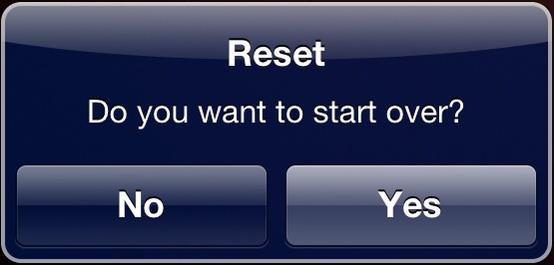As we greet the month of February, New Years and it’s lofty resolutions begin to feel like a distant memory. The hopes and dreams that we had for a fresh start have faded along with the holiday cheer, leaving us with only bare trees and icy temperatures as we long for the warmth of Spring. It’s hard to believe that it was only a few weeks ago that we committed to change. We set out our good intentions and goals, whether they be to get our bodies into shape, to improve our marriages, to stop smoking, or to stop losing our tempers with our children. On New Years we hit the reset button… or did we?
One of my New Year’s resolutions this year is to respond to my loved ones with less judgement and more validation. It’s something I have been helping my patients with in my practice and that I have been working on personally for many years. You’d think I would have it down by now; and yet the things we find most challenging in life will constantly present opportunities to test us, so to speak.
For example, right around New Years my husband and I were at the airport running to make a connecting flight and when we finally got there, exhausted from twelve hours of flying, and breathless from our mad dash through the terminal, we found out they had just closed the gate. Extremely frustrated, my husband began to argue with the agent to let us on the plane. Embarrassed by his reaction, I told him to calm down. My response predictably elicited from him further frustration, which further triggered me, and set us off into a negative dynamic.
In that and many other instances, I neglected to practice what I preach. One of the tenets, and most obvious suggestions that I help people with on a regular basis is to acknowledge and validate others for their feelings! In fact, the antidote to frustration is validation. My well-intentioned instruction to ‘calm down’ was akin to throwing kerosene into a fire. Really, how often does telling someone to calm down actually calm them down? In that moment what I needed to do was simply validate his emotional experience rather than try to change it or judge it.
Confusing Knowledge and Skill:
Why was I “messing up?” and why do so many smart people stay stuck in relationships and dynamics that don’t work for them? Even though we want to feel connected with our loved ones, in moments of conflict we often find ourselves doing or saying things that we know will trigger a negative response. This certainly isn’t due to a lack of access to information and expert advice. That’s knowledge. And knowledge is relatively easy to acquire. Skill, on the other hand, is most definitely not! It is only through ongoing repeated practice and hard work that we grow from the knowledge of something, to the skill of it.
For example, I can take a couple of weeks of tennis lessons and I will have a lot of knowledge of tennis. I will know how to position my body on the court, hold my racquet, adjust my grip and keep score. I will not have the skills, however, of playing tennis. To develop skills I will need to devote ample time, hard work and lots and lots of practice. I will need to be willing to observe my mistakes when the ball hits the net or goes over the fence with curiosity and notice where I need to tweak my form to be more successful next time. I will need to be willing to repeat this process over and over again. This is deliberate learning.
When we confuse knowledge of the game with the skill of the game we stay stuck. This is similar to our New Year’s resolutions: We make a decision to change, press that reset button and get frustrated that we haven’t been successful. Often, by the time February rolls around, we’ve given up entirely.
This process of deliberate learning to acquire a skill initially feels very unnatural. I need to learn to notice my mistakes without judgment but rather with curiosity. This is hard work and entails three important components: 1) Focusing on my piece of the dynamic, 2) Localizing and not totalizing the mistake, and 3) Giving myself credit along the way.
First, I need to be willing to examine my piece in the dynamic as that is where my control and efficacy lies. I acknowledge that I am not a helpless victim in this dynamic and that the best way to effect change is to change how I respond and react. Second, I choose to notice my mistakes without totalizing myself as a person, spouse or parent, but rather localizing the moment as just a moment in time and the mistake as just a little mistake in the larger, broader relationship. Third, I recognize the growth that I have made in this area. I acknowledge the small steps that I do take in growing new skills and give myself credit for these steps. I try to notice when I fall back into a dynamic that doesn’t work and I attribute it to the natural process of growth.
We can’t expect to improve our marriages, stop smoking, or stop screaming at our children after reading a self-help book or attending a few therapy sessions. After that we may have some additional knowledge but we will not have skill. This year, let’s commit to taking the time to observe and acknowledge the difference between knowledge and skill, to soften our inner voices and to value the process of hard work and ongoing practice in order to really learn new skills.
And save the reset button for when your computer crashes!


